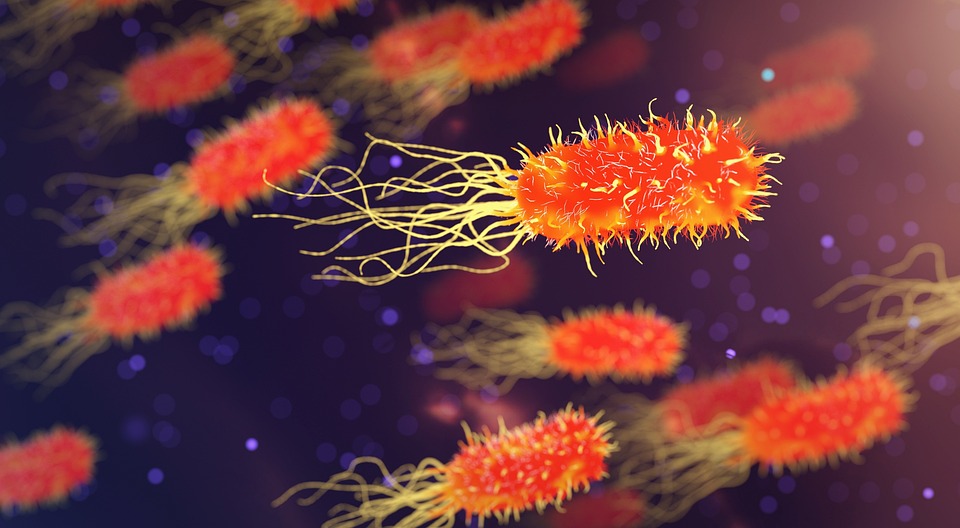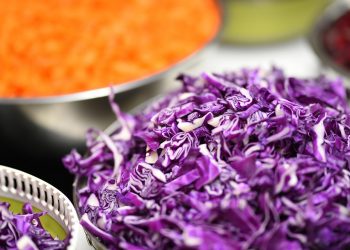Contents
5 Surprising Benefits of Onion For Gut Bacteria
Midday slump meets your favorite mug. You’re probably reaching for a pick-me-up, but what if the answer lies in something as simple as a humble onion? Often relegated to the background in meals, onions are more than just flavor enhancers. They play a surprising role in supporting gut health and nurturing our inner ecosystems.
Let’s explore five unexpected benefits that onions provide for your gut bacteria. Understanding these could transform how you view this common kitchen staple and its impact on your overall well-being.
1. Prebiotic Powerhouse
One of the most significant benefits of onions is their role as a prebiotic. Prebiotics are non-digestible fibers that promote the growth of beneficial gut bacteria. Onions are rich in inulin, a type of soluble fiber that serves as food for these good bacteria.
A study published in the American Journal of Clinical Nutrition found that consuming prebiotics like inulin can lead to an increased abundance of beneficial bacteria, such as Bifidobacteria and Lactobacilli, while also decreasing pathogenic bacteria like E. coli (Slavin, 2013). These changes in gut composition can enhance digestive health and boost the immune system.
However, it’s worth noting that not all individuals tolerate high fiber intake well. Some people may experience bloating or gas when increasing their intake of fiber-rich foods like onions. Gradually incorporating them into your diet can help mitigate these effects.
2. Rich in Antioxidants
Onions are packed with antioxidants, particularly flavonoids such as quercetin. Antioxidants play a crucial role in reducing oxidative stress in the body, including the gut. A study in the Journal of Nutrition indicated that quercetin could help modulate gut microbiota composition and function by promoting a healthier microbial balance and reducing inflammation (Halliwell, 2019).
Inflammation in the gut can lead to various digestive issues, including leaky gut syndrome and irritable bowel syndrome (IBS). By including onions in your meals, you not only enjoy their savory flavor but also offer your gut a protective layer against the harmful effects of oxidative stress.
While antioxidants are vital for gut health, it’s essential to maintain a balanced diet. Relying heavily on a single food source for antioxidants may not provide the comprehensive benefits of a varied diet rich in fruits, vegetables, and whole grains.
3. Improved Digestion
Eating onions may help improve digestion by stimulating the secretion of digestive enzymes. A study conducted by the University of Maryland noted that the sulfur compounds in onions can bolster pancreatic function, leading to more effective digestion (Bäuerl, 2020).
The better your digestive enzymes work, the more efficiently your body can break down food and absorb nutrients. However, those with certain digestive disorders, such as IBS or gastroesophageal reflux disease (GERD), might find that onions aggravate their symptoms rather than help. In these cases, it’s crucial to listen to your body and consult healthcare professionals when necessary.
4. Gut Microbiome Diversity
A diverse gut microbiome is associated with better overall health, and onions can contribute to that diversity. A recent study published in Microbiome demonstrates that the intake of dietary fiber, including that found in onions, correlates with greater microbial diversity (Heiman & Greenway, 2016).
A microbial diversity rich in various beneficial bacteria can aid in digestion, enhance immune function, and lower the risk of chronic diseases. The inclusion of onions in your meals could act as a natural way to diversify your gut flora.
Nevertheless, while striving for diversity in gut microbiota is important, it’s crucial to consider the quality of the diet as a whole. Incorporating various fiber-rich foods alongside onions can promote the healthiest and most diverse microbiome.
5. Potential Mood Enhancer
The connection between gut health and mental well-being has garnered considerable attention in recent years. Interestingly, onions might contribute to improved mood through their beneficial effects on gut bacteria. A study published in the journal Frontiers in Microbiology suggests that a healthy gut microbiome is linked to better mental health outcomes (Margoliash & Qiu, 2021).
Certain gut bacteria produce neurotransmitters, including serotonin, which significantly influences mood regulation. By nurturing these beneficial bacteria with foods like onions, you might open the door to not only better digestive health but also a more balanced emotional state.
Of course, mental health is multifaceted, incorporating elements like sleep, physical activity, and stress management. Therefore, while onions may support mood through dietary changes, they should not be viewed as a standalone solution.
FAQs
1. How can I incorporate more onions into my diet?
You can add onions to salads, stir-fries, soups, or as toppings for sandwiches and burgers. Caramelizing onions can also bring out their sweetness, making them a delightful addition to many dishes.
2. Are there any downsides to eating onions?
While onions are generally healthy, some individuals may experience digestive discomfort, such as bloating, especially when consumed in large quantities. If you’re unsure how your body reacts, start with small amounts.
3. Can cooking reduce the health benefits of onions?
Cooking onions may reduce some of their antioxidant properties, but it can also make them easier to digest. Raw onions might have a stronger flavor, while cooking can enhance their sweetness.
4. How much onion should I eat for gut health?
There isn’t a specific recommended daily intake for onions. Including a variety of fiber-rich foods in your diet, with onions as a part of that, is more beneficial than targeting a specific amount.
Conclusion
The humble onion does more than just add flavor to your meals. With unique benefits for your gut bacteria—ranging from prebiotic powers to contributions toward mood enhancement—this versatile food deserves a more prominent place on your plate.
While onions may not be a miracle food, they serve as a vital component of a balanced, health-conscious diet. As with any dietary change, listen to your body and consult healthcare professionals as necessary. Next time you chop an onion, you might just think of it not only as a cooking staple but also as an ally in your quest for a healthier gut.
References
- Bäuerl, C. (2020). Influence of sulfur compounds in onion on pancreatic function. University of Maryland. URL: [Link]
- Halliwell, B. (2019). The antioxidant capacity of onions: A review. Journal of Nutrition. URL: [Link]
- Heiman, M. L., & Greenway, F. L. (2016). A healthy gut microbiome: The key to diet-induced obesity. Microbiome. URL: [Link]
- Margoliash, J. & Qiu, Y. (2021). The impact of gut microbiota on mood disorders. Frontiers in Microbiology. URL: [Link]
- Slavin, J. (2013). Fiber and prebiotics: Mechanisms and health benefits. American Journal of Clinical Nutrition. URL: [Link]
Get Your FREE Natural Health Guide!
Subscribe now and receive our exclusive ebook packed with natural health tips, practical wellness advice, and easy lifestyle changes — delivered straight to your inbox.














